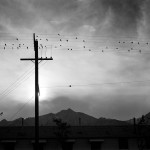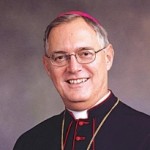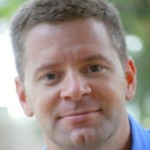:::UPDATE: All my Benedict coverage so far linked here:::END UPDATE:::
In my piece currently featured at Pajamas Media I note that the reality of Pope Benedict XVI has been very different from the projections of pundits and media gasbags who fretted over his election. As the pope makes his first address to America-at-large on the White House South Lawn, US Catholics, and really, the world get their first up-close look at man routinely reviled as the “hard-line enforcer” and “God’s Rottweiller.”
They are probably surprised by many things, not the least that Benedict is not John Paul.
That’s obvious, of course, but I think until now perhaps folks have not realized what that means.
John Paul was an actor who enjoyed an audience. He was an extrovert who fed off the energy of the crowds (can anyone forget how, at the Toronto World Youth Day JPII arrived looking enfeebled and departed looking ten years younger) – he understood the dramatic moment, and he loved nothing better to engage the crowd and work them.
Benedict is a professor and a teacher who loves nothing better than the solitude of his books. He is an introvert who is spent of energy around crowds. He is not a dramatist and does not instinctively “prolong a moment” for the cameras or anything else. His arrival at the White House was described as “almost serenely quiet”.
In speaking English, John Paul was halting and heavily accented; he spoke slowly and dared you to hang in and listen. Benedict is fluent and fast – he expects you to keep up.
John Paul II, while in public, showed you what he was feeling and wanted to know what you were feeling. Public Benedict does not show you his feelings; he is too busy thinking, and you can see it. On the WH lawn, he clearly appreciated the music and seemed mildly amused by the remarkable pipe-and-drum band, but he was not playing to the audience; he was watching and observing.
Where Benedict resembles his predecessor, however, is in content. This morning’s speech was a remarkable “opening” to the six days of dialogue and instruction that will characterize his visit. He said:
“Freedom is not only a gift, but also a summons to personal responsibility. Americans know this from experience — almost every town in this country has its monuments honouring those who sacrificed their lives in defence of freedom, both at home and abroad. The preservation of freedom calls for the cultivation of virtue, self-discipline, sacrifice for the common good and a sense of responsibility towards the less fortunate. It also demands the courage to engage in civic life and to bring one’s deepest beliefs and values to reasoned public debate. In a word, freedom is ever new. It is a challenge held out to each generation, and it must constantly be won over for the cause of good. Few have understood this as clearly as the late Pope John Paul II. In reflecting on the spiritual victory of freedom over totalitarianism in his native Poland and in eastern Europe, he reminded us that history shows, time and again, that “in a world without truth, freedom loses its foundation,” and a democracy without values can lose its very soul. Those prophetic words in some sense echo the conviction of President Washington, expressed in his Farewell Address, that religion and morality represent “indispensable supports” of political prosperity
So, externals and personalities aside, the beat goes on.
As a friend wrote to me when Benedict ended his speech:
This guy is brilliant; the speech was superb. JPII hit you in the chest and gut. This guy hits you right between the eyes.
Yes. He is the cerebral pope. John Paul made you feel; Benedict makes you think. If you’re looking for catharsis and “feelings” you won’t get them. Just the truth delivered at 160 wpm.
Some of that, also, is cultural. John Paul, a Pole, brought into his papacy all of the warmth and gregariousness that makes up the brilliance and resilience of Poland. Bavarian Benedict carries with him the reserves and proprieties of that land. My dear, late brother-in-law’s parents came from Germany. They were people as generous and giving as you could want, but I don’t believe I ever saw either of them break into a huge smile. That was just their way; thoughtful, quiet and hard-working.
Thus, some in America may find themselves disappointed that Benedict seems so “unresponsive” to the crowds hooting and calling to him. A friend emailing from her job wrote:
I know they’re different men but I wish he’d blow a few kisses, like JPII. When the crowd goes loud, they seem to get unsure and quiet down because they can’t read his response, and they keep waiting for the big gesture from him.
I suspect Benedict, shy and probably wishing he was home with a purring cat in his lap and a good book, simply is not comfortable with it. One cannot change one’s essential nature, especially when one is 81. And really, there is something to be said for “serenely quiet” in our age full of empty noise.
I was struck by the images attending the Pope’s visit to the White House, particularly the shot of the pope and the president standing shoulder-to-shoulder. Striking and more powerful than a thousand pundits. Looking at all those Catholics on the South Lawn, both clergy and laity, I couldn’t help think: forty years ago this would have been unthinkable. Greg Kandra had the same thought and expands upon that here:
Back then, in the early days of the 20th century, Catholics were considered Papists, or pagans, or worse. They were the cooks and housekeepers and bus drivers and janitors. Some became priests or teachers. A few with money and connections would ascend to higher places – think of the Kennedys — but it was rare.
So what I witnessed this morning was, for me, moving – and monumental.
Not so very long ago, the idea that a President of the United States would greet the Pope at the White House was unthinkable.
The prospect of a pontiff addressing 12,000 people – and millions more across the country by TV — on the White House lawn was laughable.
Btw, the press is trying to make a big deal out of the fact that Benedict is not attending a White House dinner in his honor and they’re hinting it is a “snub” of President Bush. Hello…as John Allen – who would know – writes, the pope does not eat in public. Ever. The pope does not “go to dinners.” The American Press really does not understand that the pope is not an American politico.
Fun trivia: Rocco mentions that the first verse of today’s final song at the White House, The Battle Hymn of the Republic, was inspired by the first reading in today’s Office of Readings.
Kathryn Jean Lopez interviews Mary Ann Glendon, US Ambassador to the Holy See.
Also writing:
Patrick O’ Hannigan notes the unsurprising huffing of the press.
Inside Catholic Blog is wall-to-wall Benedict
Great links at Pro Ecclesia; just keep scrolling!
Fausta on lecturing the pope
Siggy on the pope and Virginia Tech
Delia Gallagher on how Benedict surrendered to the papacy
Memo: Pope found to be Catholic.
Check back as I’ll be linking to more as I find them. Deacon Greg highlights the running NY Times blog which features better writers than me.
WELCOME: Instapundit Readers! While you’re here, please look around. Today we’re also talking about how Benedict’s serious message in to an unserious society and how this Peter is a lot like St. Paul, the Bodylanguage of Benedict, the shame of the scandals and – if you need a break from Benedict, how Madison Avenue is waking up to men and, finally glorious Miss Ella Fitzgerald giving chills and swinging out!











